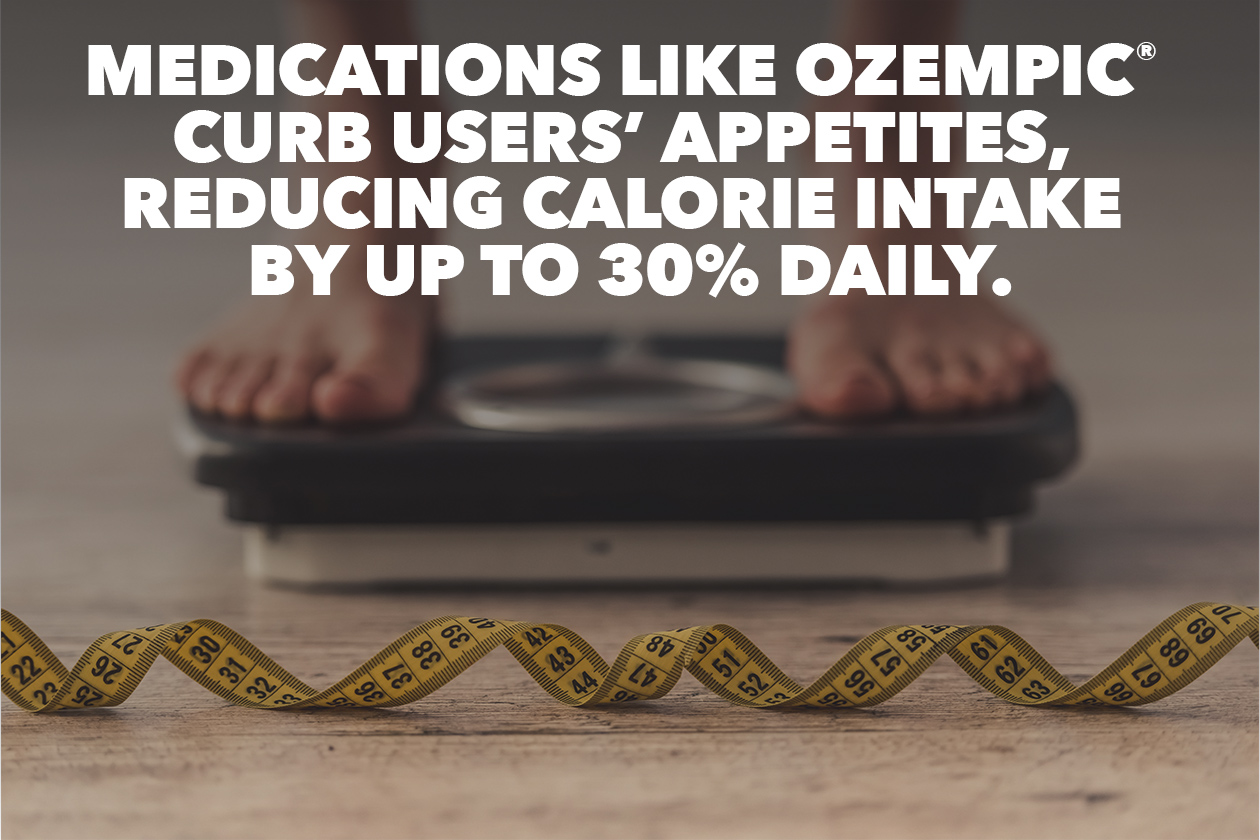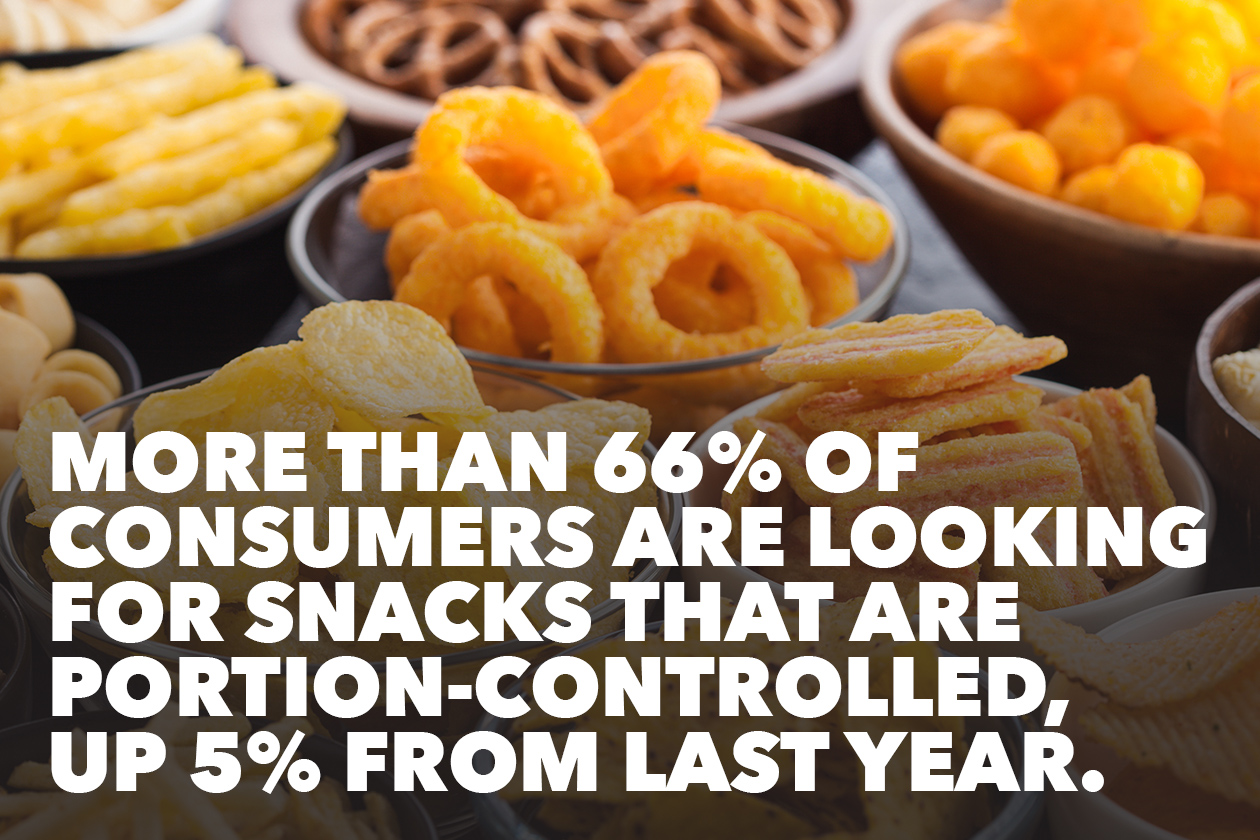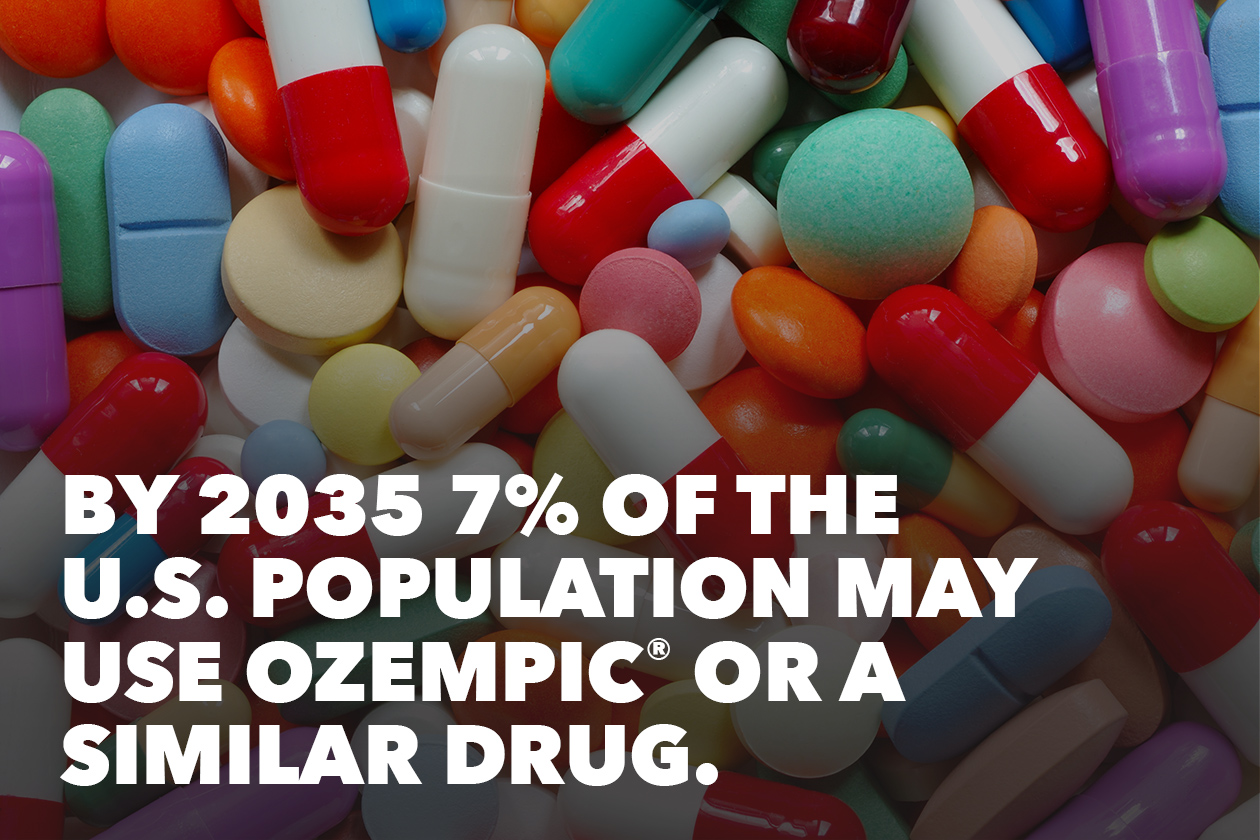Whether it’s a new fad, economic changes or health concerns, many factors can affect and change consumer eating habits. In the past year, use of semaglutide drugs, such as Ozempic® and Wegovy®, has been on the rise to combat obesity, and it’s causing food brands to rethink their sales strategies. These medications curb users’ appetites, reducing calorie intake by up to 30% daily—a percentage which will force many food and beverage companies to rethink previously held assumptions.

But just because some consumers will reduce calorie intake doesn’t mean that CPG companies are ready to give up sales.
“The food industry isn’t as worried about this craze as we might think,” noted Brandon Miller, creative director and co-host of State of the Plate, in a recent podcast episode. “They know that if they can understand and adapt to what these consumers are looking for, there’s no reason to freak out. They’ve seen it coming and they’re being proactive about it instead of reactive.”
In response to the decreased demand for traditional snacks and indulgent treats, brands are rolling out a new wave of products tailored to health-conscious individuals. Annie’s Homegrown, a popular organic CPG brand, released a new version of their packaged macaroni and cheese known as “Super Mac” which contains 66% more protein than its regular product.
Earlier this year, Abbott announced the launch of its new PROTALITY™ brand with a high-protein nutrition shake. The shake is marketed toward adults on weight loss journeys who want to maintain muscle mass and good nutrition.
“Whether it’s due to decreased appetite or a busy schedule, it can be difficult for people losing weight to get the protein, vitamins and minerals they need to support their unique health goals. Our PROTALITY brand provides a nutrient-dense option designed to address gaps that may result in their diets,” said Dominique R. Williams, MD, MPH, medical director and obesity specialist at Abbott.
Mondelēz, which owns brands like Oreo® cookies, Ritz® crackers and Tate’s Bake Shop, noted that more than 66% of consumers are looking for snacks that are portion-controlled, up 5% from last year.

“Even with the rising cost of groceries, we’re seeing that consumers are prioritizing health foods. We saw an 8% increase in the sales of ‘better-for-you’ frozen meals because portion control is so big right now even though it’s not the most economic choice,” said Miller.
While right now many of these drugs are struggling to meet consumer demand, pharmaceutical companies are working to overcome supply chain challenges and generic forms of these medications are expected to be available soon. Increased availability will be key as nearly half of adults say they’d be interested in taking a safe and effective weight loss drug and a Morgan Stanley report predicts by 2035 7% of the U.S. population may use Ozempic or a similar drug.

In this era of evolving dietary preferences and heightened health consciousness, food brands are navigating a landscape where adaptation is the name of the game. By leveraging consumer insights and embracing innovation, these companies are not merely weathering the storm but actively shaping the future of the food industry.
C.O.nxt Insight.
Our team of subject matter experts focuses on food and agriculture—farm field to processing to entrée on a plate. We can help you build a new brand, protect an old one or target customers to foster sales. Let’s talk when the time is right to handle your next strategic marketing and communications challenge: Marcy Tessmann, marcy@co-nxt.com.
SHARE THIS STORY
What Would You Solve in 30 Days?
Every brand faces moments when clarity, momentum, or alignment are lacking. Sometimes it’s a new product that needs a smart go-to-market plan. Other times, it’s a shift in the business that calls for a tighter

